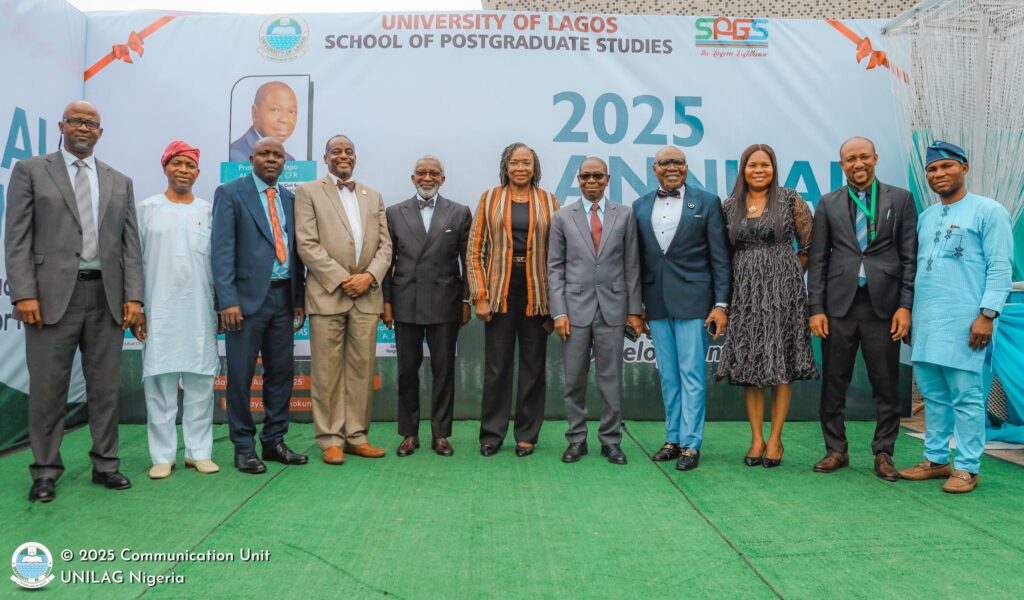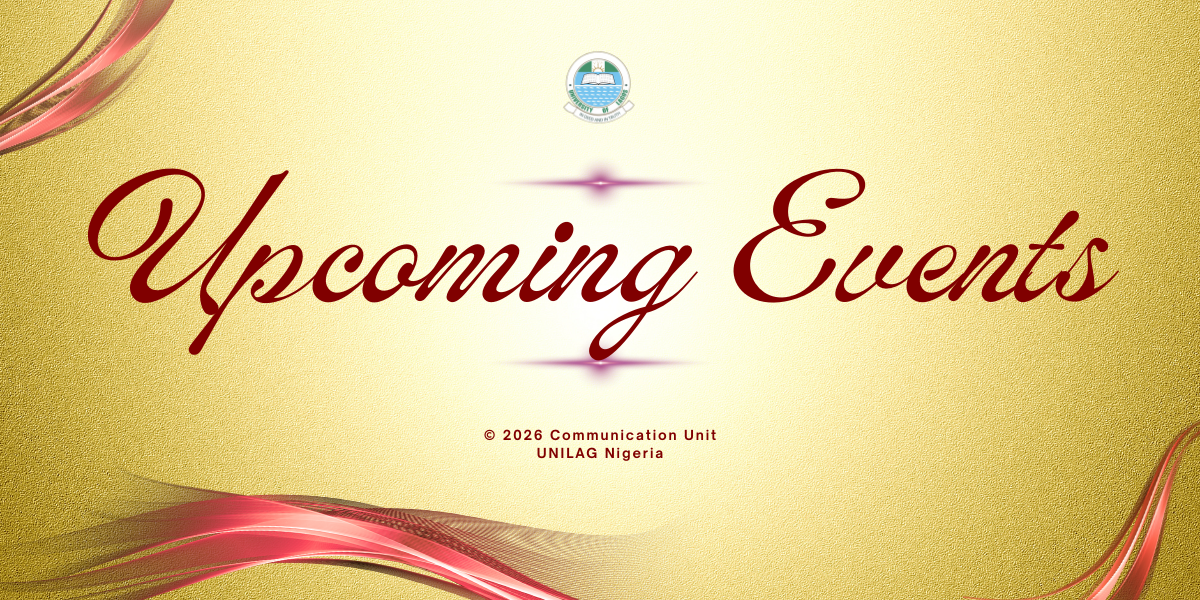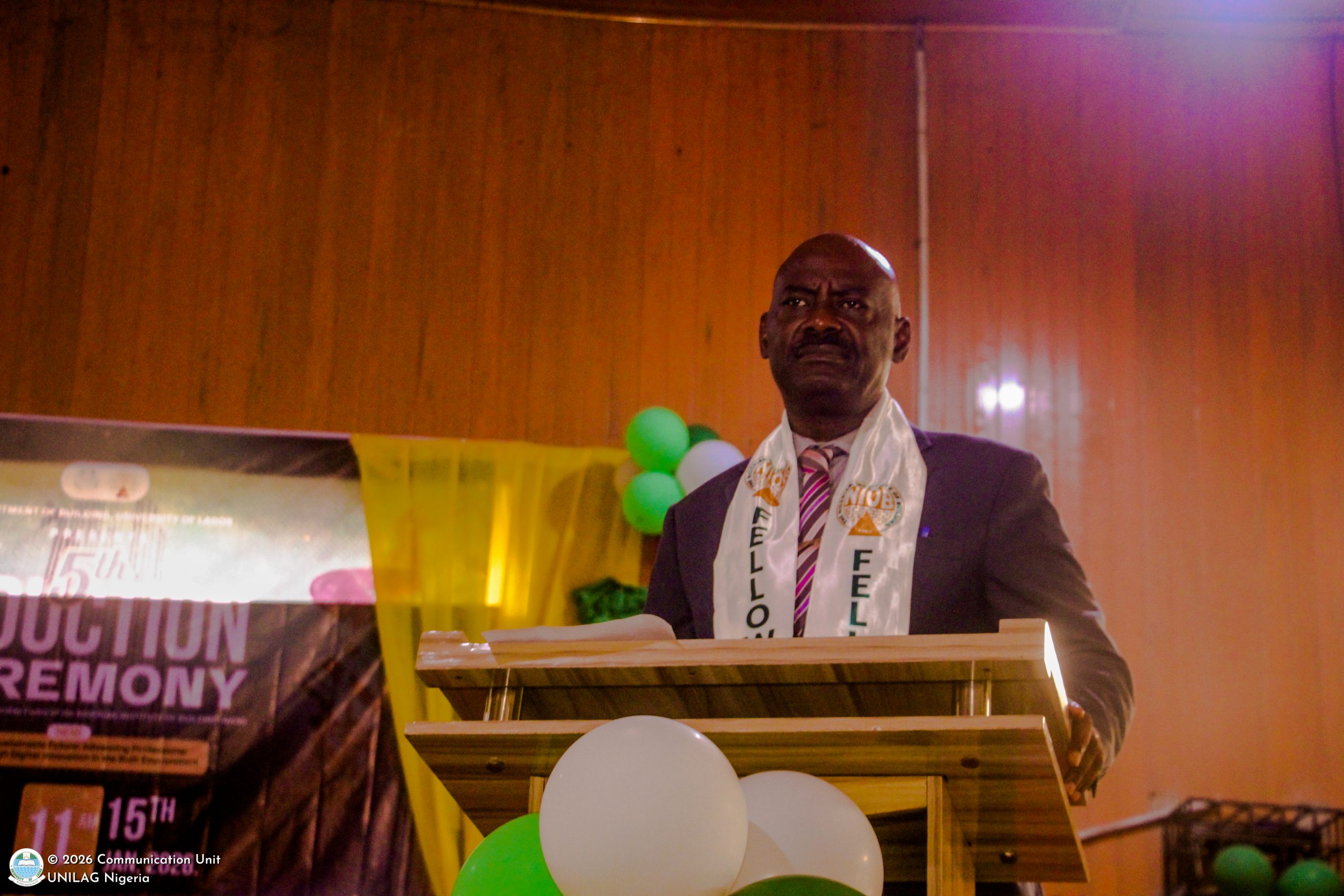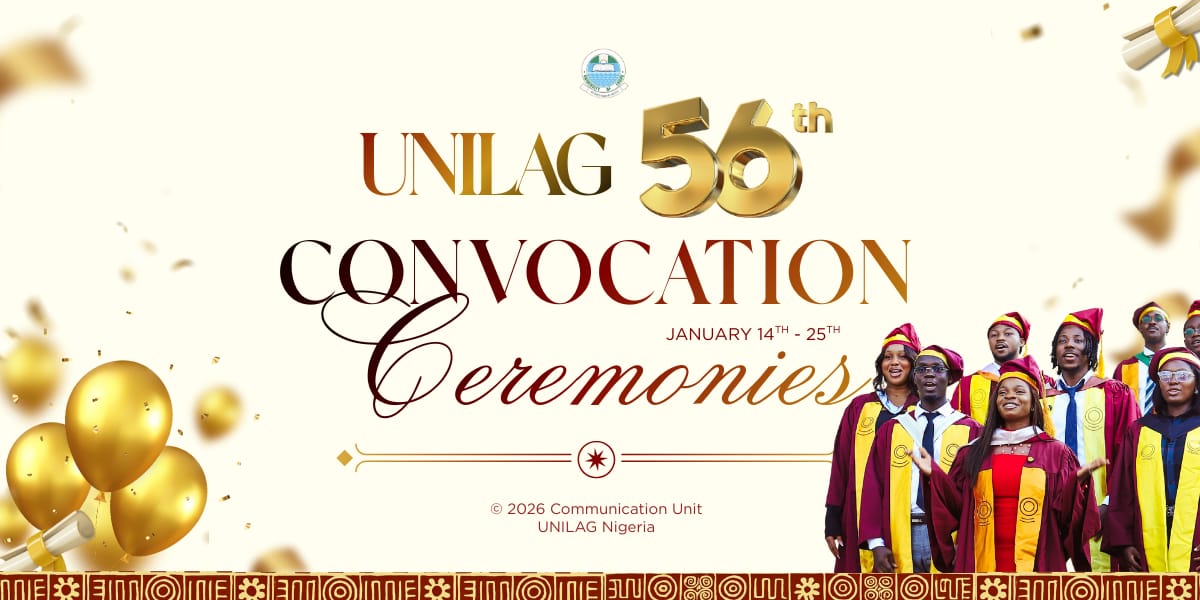The call to reposition postgraduate education as a central driver of Nigeria’s national development took centre stage at the 2025 Annual Lecture of the School of Postgraduate Studies, University of Lagos, on Thursday, August 14, 2025.
A Gathering of Great Nigerian Minds
By 11:00 a.m., the Tayo Aderinokun Auditorium had filled with academics, policymakers, postgraduate students, and industry leaders, all gathered under the theme “Postgraduate Education: Setting Agenda for National Development.”
Proceedings opened with welcome remarks from the Dean of SPGS-UNILAG, Professor Abraham Osinubi, who described the Annual Lecture as a platform for the interrogation of ideas which will “address the acute developmental neuropathy of our country, to fix the disconnect between the brain of academia and the muscles of industry“. He set the tone for the day by emphasizing the urgency of aligning research with Nigeria’s socio-economic agenda.
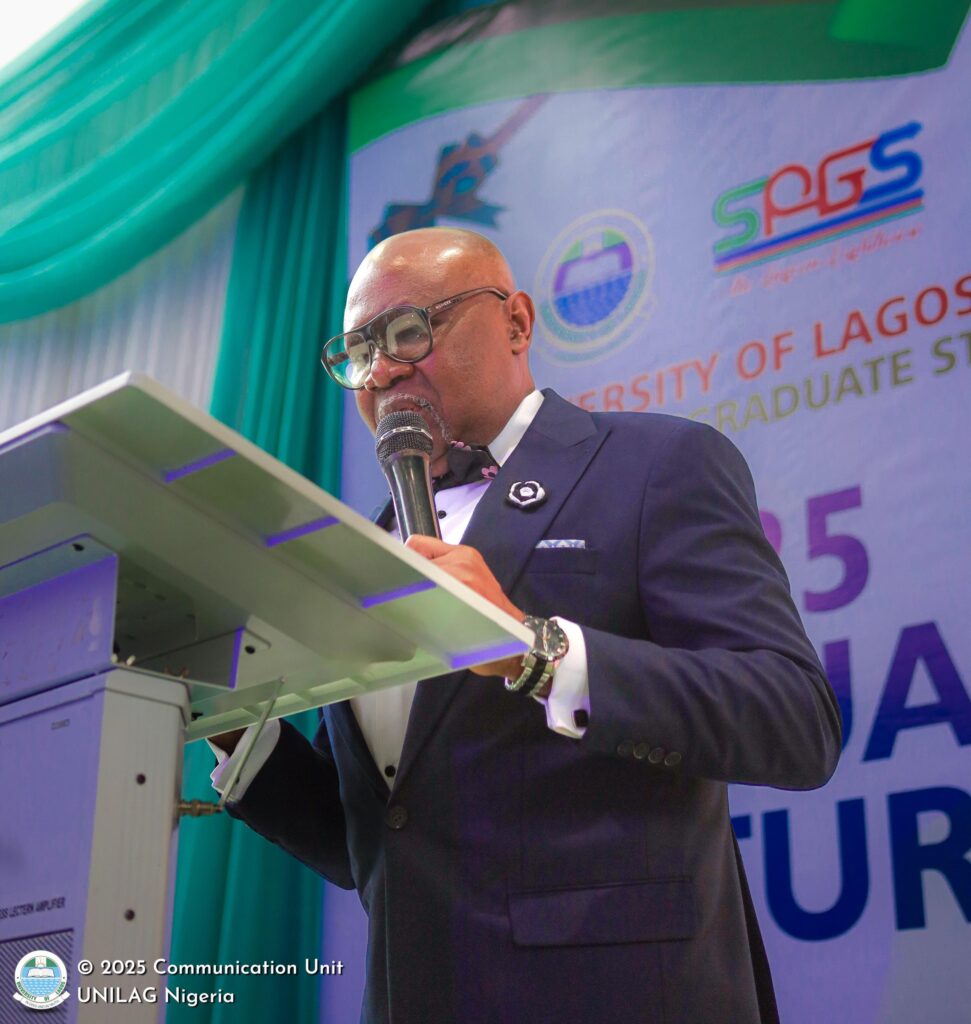
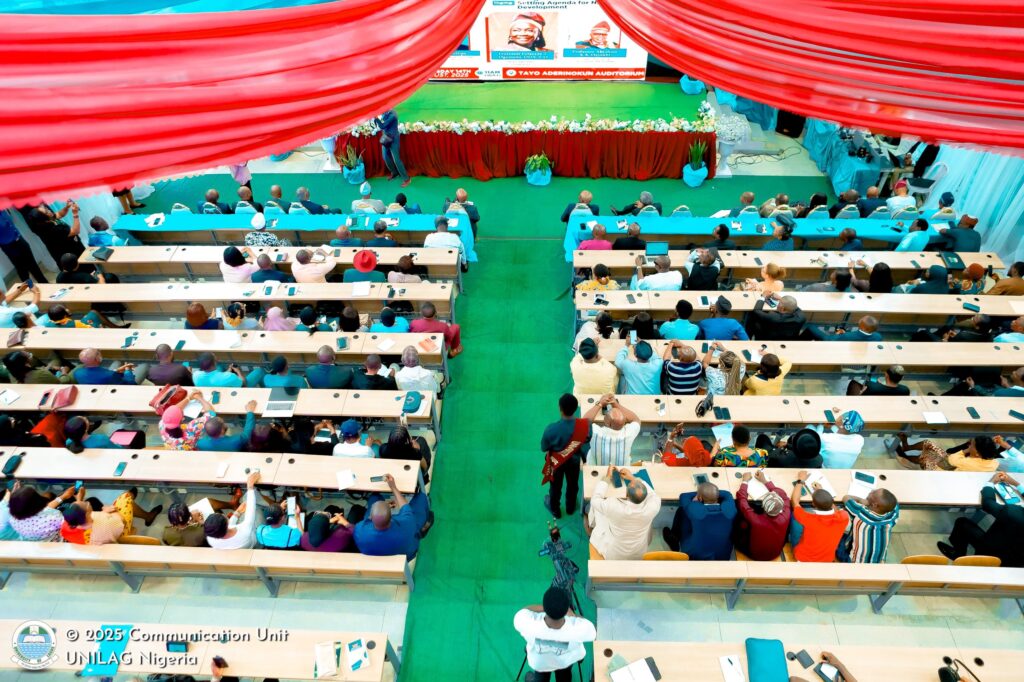
In her address, the Vice-Chancellor, Professor Ogunsola, OON, FAS underscored UNILAG’s role as a hub for high-level manpower development, stressing that postgraduate education must be more than an academic pursuit.
“Postgraduate researching and teaching must serve as an engine for innovation, governance reform, and industrial growth”, she declared.
She reaffirmed the university’s commitment to fostering cutting-edge research that speaks directly to the country’s challenges.
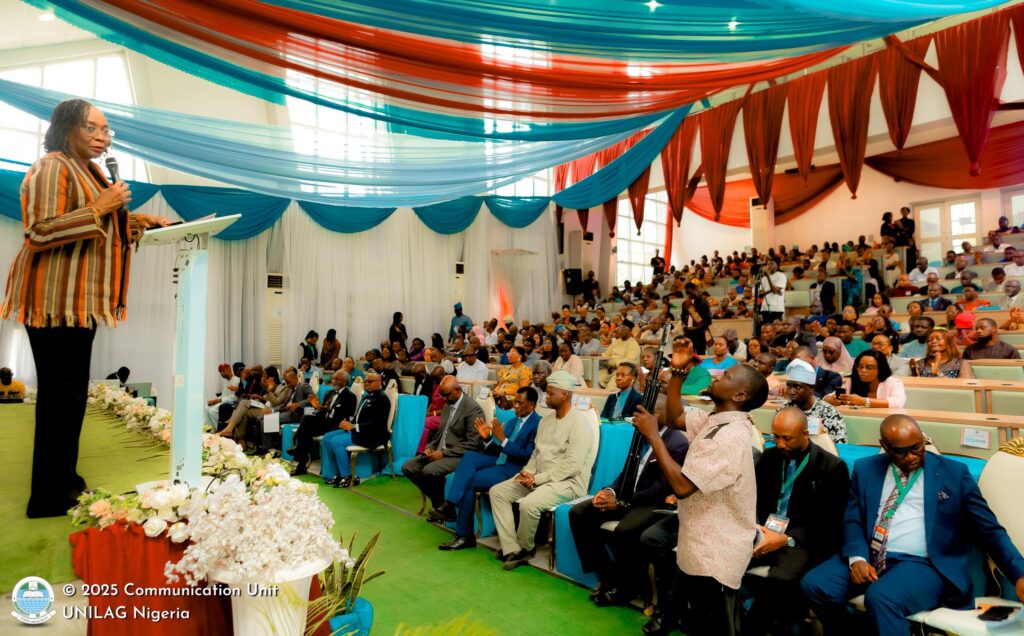
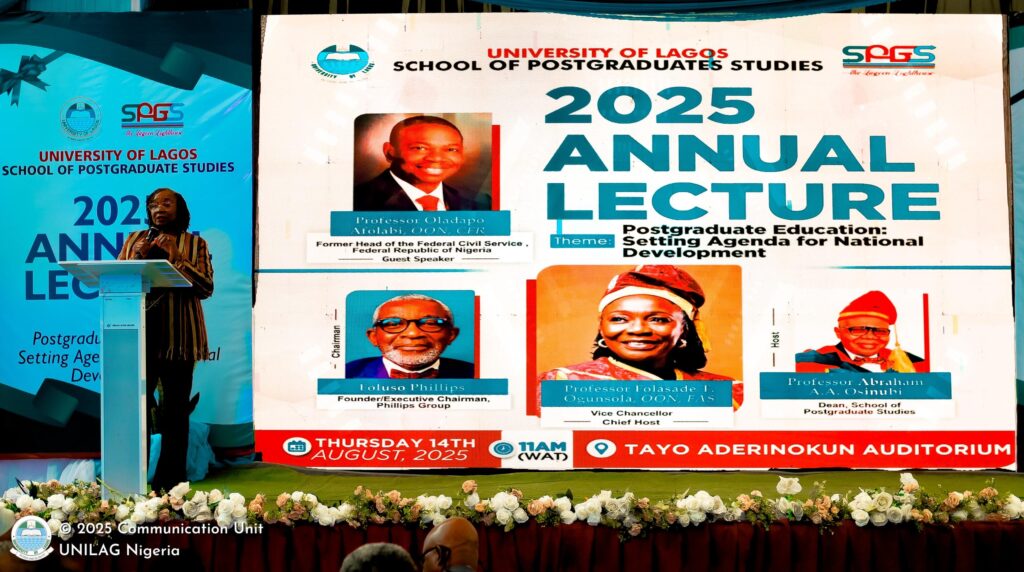
Chairman of the occasion and renowned founder of Phillips Consulting Group, Mr. Foluso Phillips, highlighted the link between human capital and national competitiveness, pointing out that without a deliberate national strategy, Nigeria risks “building schools without blueprints.” He urged a rethink of the relationship between universities, industry, and government.
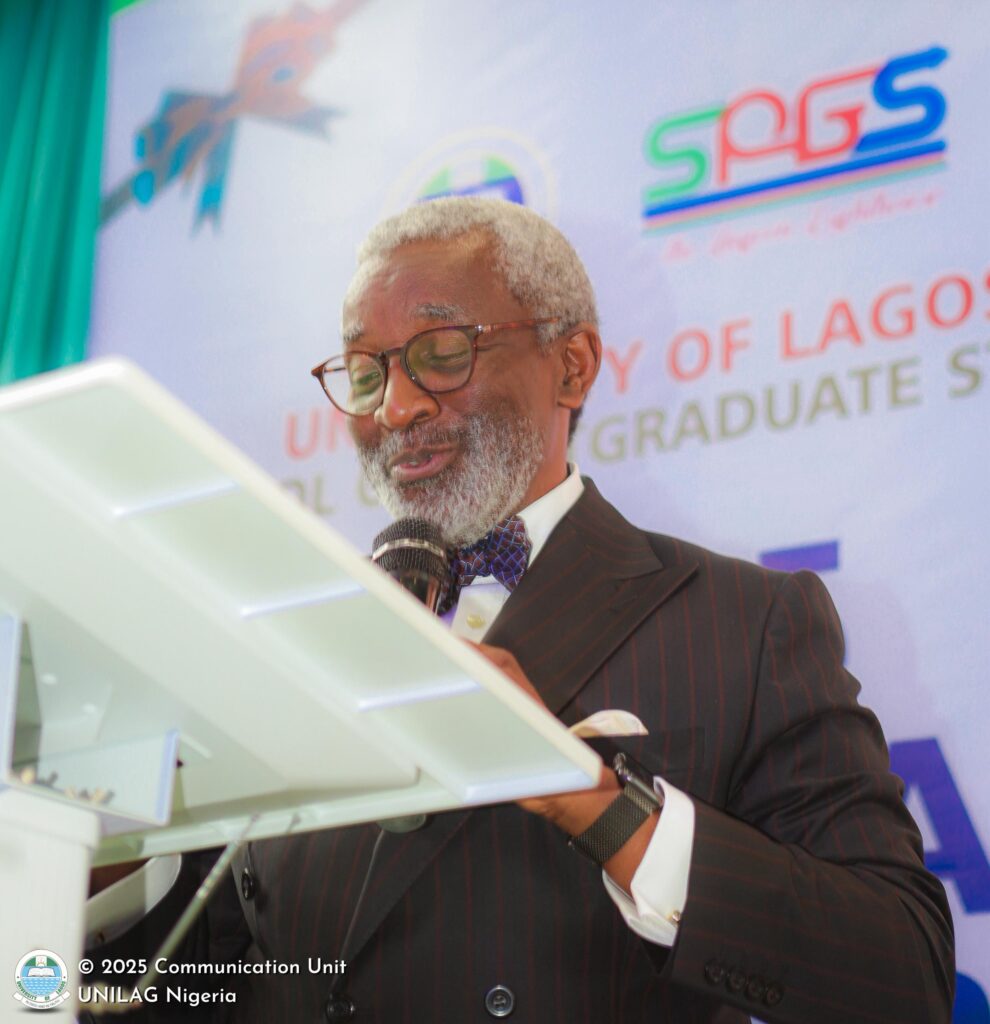
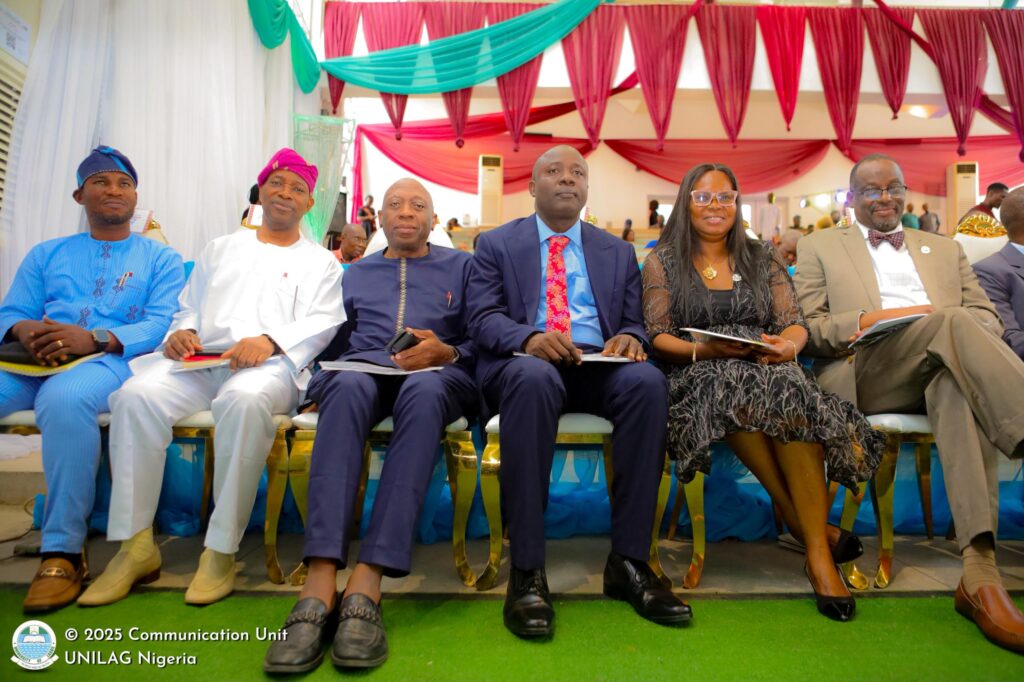
2025 SPGS-UNILAG Annual Lecture: Postgraduate Education: Setting Agenda for National Development
A former Head of the Federal Civil Service and accomplished scientist, Professor Oladapo Afolabi, OON, CFR delivered the lecture. Drawing from his extensive career in research, governance, and policy, Professor Afolabi made a compelling case for treating postgraduate education as a strategic national asset.
“Our greatest asset is our people. Educated minds are the architects of national reform,” he submitted.
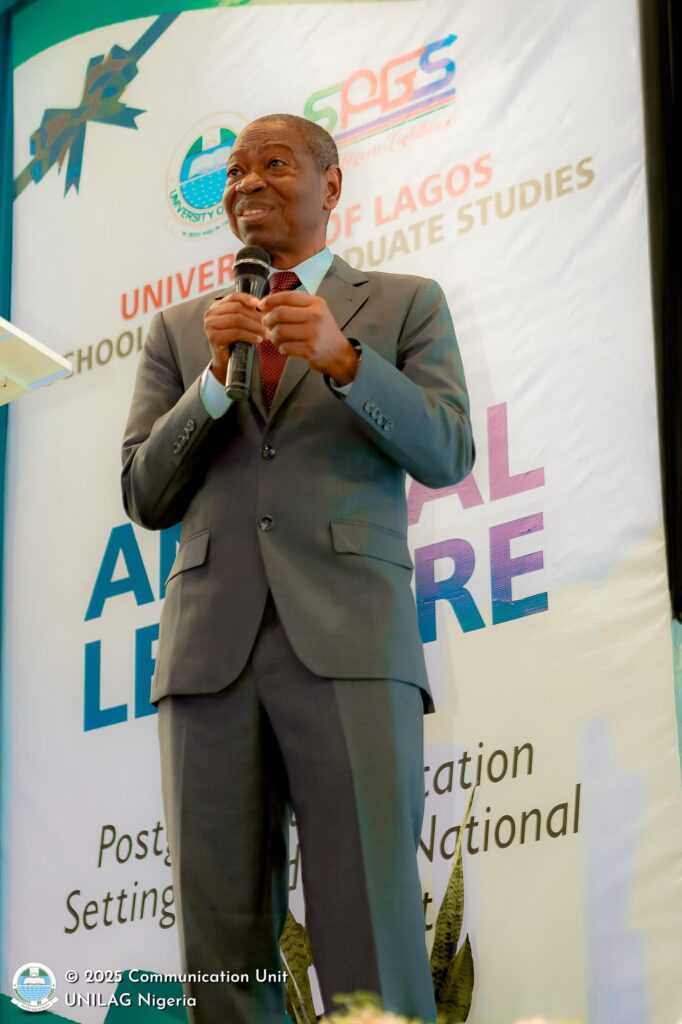
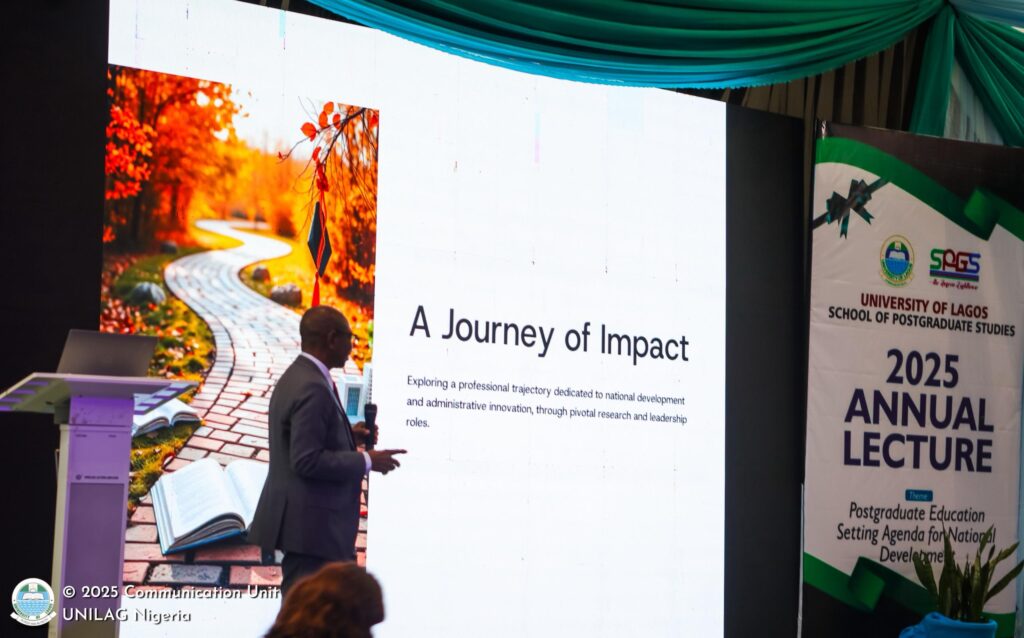
He outlined the transformative potential of postgraduate training in driving innovation, boosting productivity, and enhancing global competitiveness. Citing success stories from Finland, South Korea, and the United Kingdom, he identified six “bold moves” Nigeria must make. These are:
* revamping curricula to align with Vision 2050.
* boosting funding for research and scholarships.
* strengthening industry-academia partnerships.
* promoting global collaboration.
* reforming governance to grant universities autonomy, and
* creating a National Research Council to set priorities and measure impact.
Professor Afolabi also confronted the barriers holding the education sector back: disconnected research, outdated curricula, inadequate funding, and brain drain, warning that “unless addressed, these will continue to limit the country’s developmental strides.”
The lecture concluded with a Question & Answer session, which gave participants an avenue to engage the Guest Speaker on practical steps for translating policy into action..
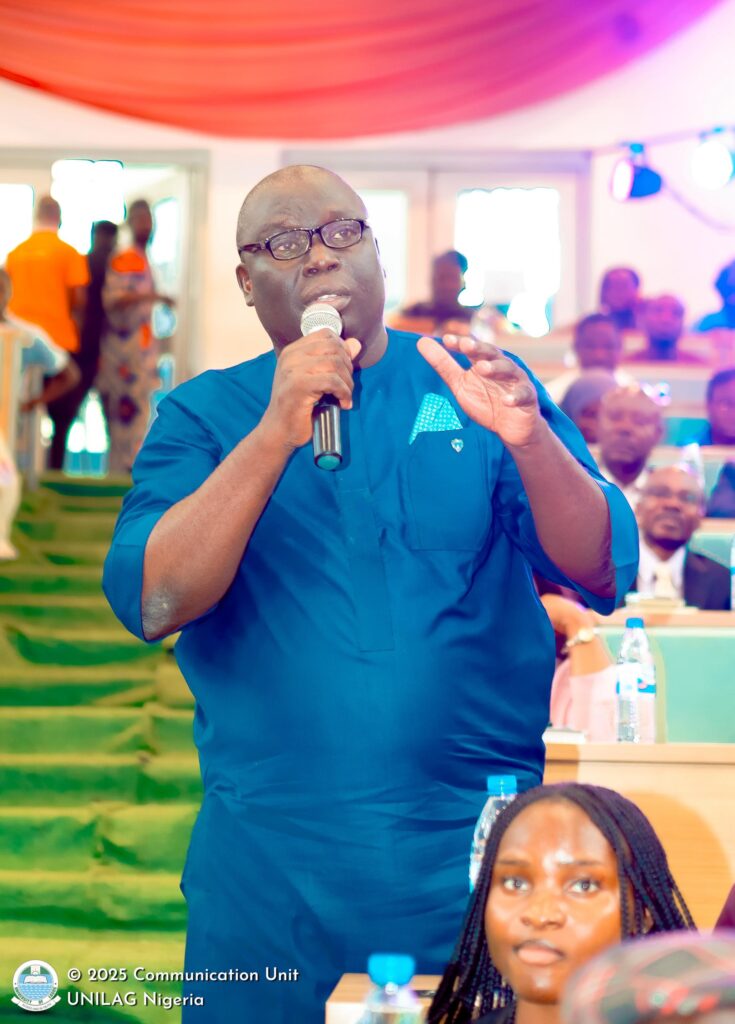
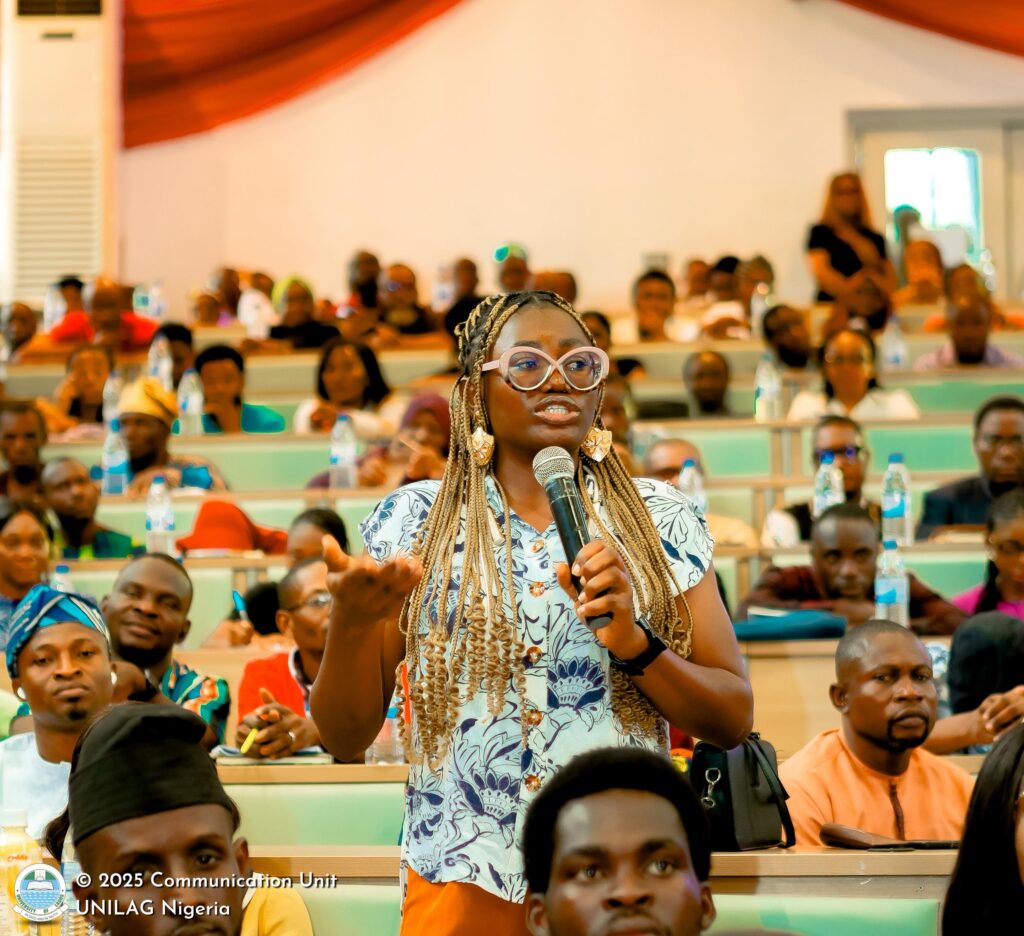
Closing with Renewed Sense of Purpose and Direction
Closing remarks from the Chairman, Mr. Foluso Phillips, reinforced the message that postgraduate education, if strategically harnessed, could be Nigeria’s most potent tool for navigating the complexities of the 21st century.
The 2025 Annual Postgraduate Lecture at UNILAG was a resounding success. The event provided a platform for stakeholders to engage in discourse on the future of postgraduate education in Nigeria and its role in driving national development. As guests departed, the overarching sentiment was clear: the future of Nigeria’s development agenda rests heavily on the quality, direction, and strategic use of its postgraduate education system.
Report: Pelumi Oloyede (Student-Intern)
Editor: Isaiah Kumuyi
Photography: Ayo Oloyede

